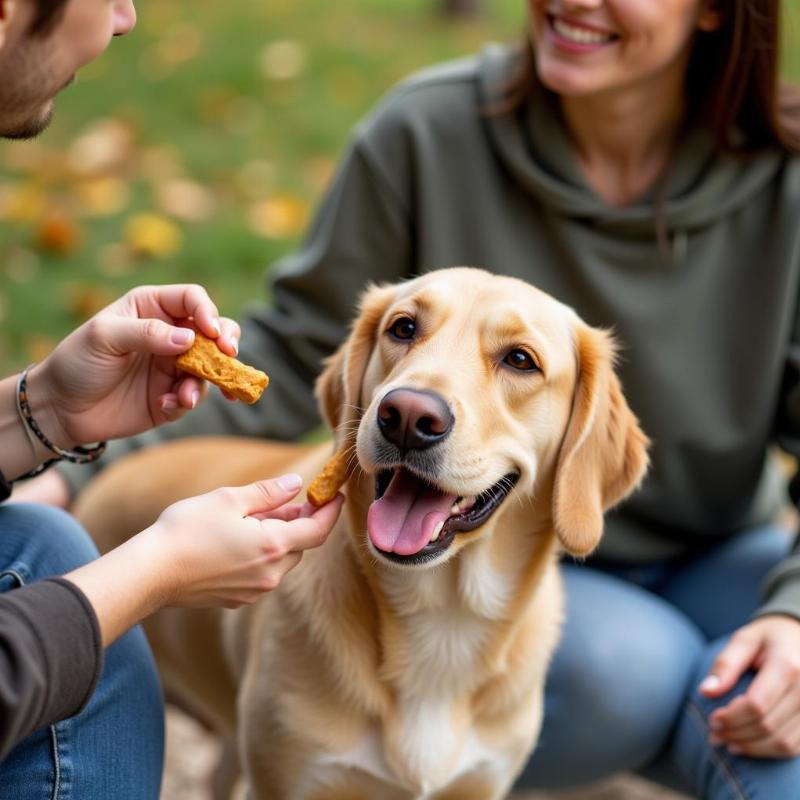Dogs pooping on beds is a frustrating and perplexing problem for many owners. Understanding the underlying reasons for this unsanitary behavior is the first step to resolving it. While it may seem like a deliberate act of defiance, there’s usually a more complex explanation than simple spite. This article will delve into the common causes, offer practical solutions, and provide valuable insights to help you navigate this messy situation.
Medical Reasons Behind Bed Pooping
Sometimes, medical issues can contribute to a dog’s inability to control their bowels. Conditions like inflammatory bowel disease, intestinal parasites, and even cognitive decline can lead to accidents, including pooping on the bed. If your dog suddenly starts exhibiting this behavior, a visit to your veterinarian is crucial. They can perform a thorough examination and recommend appropriate treatment.
Behavioral Reasons for Dogs Pooping on Beds
Beyond medical reasons, several behavioral factors can contribute to this unpleasant habit. Anxiety, fear, and even submissive behavior can lead to accidents. Puppies, especially those still undergoing house training, may not have full bladder and bowel control yet. Similarly, senior dogs can experience cognitive decline, resulting in a loss of house-training skills.
Anxiety and Fear
Stressful situations, such as loud noises, unfamiliar environments, or changes in routine, can trigger anxiety and lead to accidents. Separation anxiety is a common culprit, with dogs defecating on their owner’s bed as a way of seeking comfort.
Submissive Behavior
In some cases, dogs may poop on beds as a sign of submission. This is often observed in dogs who are fearful or insecure. They may urinate or defecate as a way of appeasing a dominant figure, whether human or animal, in their household.
Marking Territory
While less common, some dogs may poop on beds as a way of marking their territory. This is especially true if there are other pets in the home. The bed, often carrying the owner’s scent, becomes a prime target for asserting dominance.
Addressing the Issue of Dogs Pooping on Beds
Dealing with this issue requires a multi-pronged approach, addressing both the potential medical and behavioral factors. Consult with your veterinarian to rule out any underlying medical conditions. Once medical issues are addressed or ruled out, focus on behavioral modification techniques.
Reinforce House Training
Consistent house training is crucial, regardless of your dog’s age. Establish a regular potty schedule, rewarding successful outdoor elimination with positive reinforcement. Use enzyme cleaners to thoroughly eliminate any traces of odor from previous accidents on the bed, as the scent can attract them back to the same spot.
Manage Anxiety and Fear
Identify and address any potential stressors in your dog’s environment. Create a safe and comfortable space for them, especially if they suffer from separation anxiety. Consider using calming aids, such as pheromone diffusers or anxiety vests, after consulting with your veterinarian.
 Dog potty training
Dog potty training
Seek Professional Help
If the behavior persists, consult with a certified professional dog trainer or a veterinary behaviorist. They can provide personalized guidance and develop a tailored training plan to address your dog’s specific needs.
Preventing Future Accidents
Prevention is key to maintaining a clean and hygienic home. Restricting access to the bed, especially when unsupervised, can be a helpful first step. Crate training can be beneficial, providing a designated den-like space for your dog. Ensure your dog gets plenty of exercise and mental stimulation, as this can help reduce anxiety and promote healthy bowel movements.
Conclusion
Dogs pooping on beds is a complex issue with various underlying causes. By addressing both medical and behavioral factors, and implementing preventive measures, you can effectively resolve this problem and create a harmonious living environment for both you and your furry friend. Remember, patience and consistency are key to success.
FAQ
-
Why does my older dog suddenly poop on the bed? Cognitive decline, similar to dementia in humans, can cause older dogs to forget their house training. A vet check is recommended to rule out other medical issues.
-
Is my dog pooping on the bed out of spite? While it might seem that way, it’s rarely the case. There’s usually an underlying reason, be it medical, behavioral, or related to incomplete house training.
-
How can I clean dog poop from my bed? Use an enzymatic cleaner specifically designed for pet messes to eliminate the odor and prevent re-soiling.
-
What if my dog is pooping on the bed due to separation anxiety? Consult with a vet or a certified dog trainer. They can recommend strategies to manage separation anxiety, such as crate training or desensitization techniques.
-
Can medication help my dog stop pooping on the bed? In some cases, medication may be necessary to address underlying anxiety or medical conditions. Your veterinarian can advise on appropriate medication if needed.
-
How can I prevent my dog from pooping on the bed in the future? Restrict access to the bed, reinforce house training, provide plenty of exercise, and address any underlying anxieties.
-
Should I punish my dog for pooping on the bed? Punishment is rarely effective and can worsen the problem by increasing anxiety. Focus on positive reinforcement and addressing the underlying cause of the behavior.
Beautdogs.us is your premier source for comprehensive and trustworthy information on all things dog-related in the US. We offer expert advice on dog breeds, care, and products, catering to both novice and experienced dog owners. Our goal is to empower you to provide the best possible care for your canine companion. For personalized guidance or to learn more about our services, contact us at [email protected] or call us at +1 501-555-7529. Beautdogs.us is committed to helping you and your furry friend live a happy and fulfilling life together.